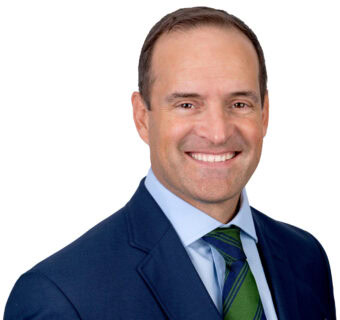Preparing for a Cayman Islands Monetary Authority Inspection
One of the most common ways in which CIMA assesses compliance with its regulatory framework is through inspections. CIMA conducts various forms of inspections ranging from AML-CFT specific inspections, prudential inspections and themed inspections.
CIMA’s themed inspections focus on specific topics such as corporate governance, cybersecurity and outsourcing, (as opposed to a specific sector e.g., banking, insurance). Feedback from CIMA’s themed inspections is generally published on CIMA’s website in the form of a report setting out the key themes identified, good practices and bad practices. Themed inspections are useful reminders of CIMA’s regulatory expectations on specific topics.




Legal basis
The extent of CIMA’s investigative powers vary, depending on the process being followed. In this briefing, we will focus on the powers afforded to CIMA under section 6(1)(b) of the Monetary Authority Act (as revised) and other related laws to carry out desk-based and on-site inspections.
During 2024, there was a notable increase in the number of inspections being carried out by CIMA across all divisions in particular within the Insurance Supervision Division and Securities Supervision Division. From working with clients across various regulated sectors, we see that trend continuing to evolve at pace for the remainder of 2024 and into 2025.
In this briefing we look at what to expect if you are subject to an inspection and how Appleby can help.
Key stage of a CIMA inspection
Save the date notification: every CIMA inspection starts with a written letter informing the financial service provider (FSP) or its appointed agent of the inspection of the subject matter, purpose and scope of the inspection. This is followed by a list of requested documentation to be provided to CIMA pre-inspection. CIMA will examine the inspected FSP’s policies & procedures, board minutes, internal/external audits reports to identify any gaps or weaknesses in that documentation.
If the FSP has questions regarding the requested information, they should seek clarification from CIMA or their usual Appleby contact.
Pre-inspection planning: once notified of the inspection, the FSP should start to put in place any mitigation activities to address any gaps by ensuring policies & procedures are up to date, records are maintained so they can be provided to CIMA at short notice etc.
Inspection phase: there will be an opening meeting introducing CIMA’s inspection team to the FSP’s team involved in the inspection. This kick off meeting marks the start of the inspection and may be followed by a series of meeting themes covering e.g., corporate governance, cybersecurity, outsourcing, IT systems and operational resilience.
CIMA’s inspections are conducted on a proportionate basis according to the nature, scale and complexity of the FSP’s activities. The principle of proportionality is covered in CIMA’s regulatory measures published on its website. FSPs should always apply the principle of proportionality to their own compliance framework.
During the inspection CIMA will interview staff to ask probing questions about the inspected areas and the inspected FSP’s processes and procedures. The aim of these interviews is to ensure that the processes the inspected FSP has in place are actually applied in practice.
Closing meeting: the aim of the closing meeting is to discuss the inspection with the inspected FSP. During the closing meeting CIMA will summarise the scope of the inspection and materials reviewed, highlight any issues or concerns and give the inspected firm an opportunity to provide feedback. Comprehensive notes of the closing meeting and any initial findings should be prepared. If it is anticipated that there will be a compliance issue identified or a divergence of analysis on a matter between CIMA and the FSP, the FSP may wish to obtain legal advice prior to the closing meeting. The closing meeting does not necessarily mean the end of a particular matter, as any identified material breaches may be referred to enforcement if not remediated within the prescribed timeline.
Post-inspection reporting phase: After CIMA has concluded the inspection, it will issue a draft report to the inspected FSP and share its findings. If there are findings to be remediated, these will be categorized depending on their severity and a response deadline will be provided. The inspected FSP will have the opportunity to provide feedback for CIMA to determine if any adjustments need to be made ahead of issuing the final report. Depending on the nature of the matters to be remediated, the FSP may wish to engage legal counsel to assist in preparing their written response to CIMA.
Enforcement
In recent years, administrative fines imposed by CIMA has significantly increased. CIMA’s enforcement regime allows CIMA to impose a fine on an FSP and/or an individual involved in managing a regulated firm, where it has reasonable grounds to suspect that a regulatory breach has been or is being committed. To date, CIMA has imposed eleven fines on regulated entities and individuals under its administrative fines regime.
Although CIMA does not publicly publish a list of enforcement priorities, core areas of focus for working with FSP clients appear to be (i) assessing the financial and operational resilience of FSPs; (ii) supervising compliance with AML-CFT obligations; (iii) compliance with and implementing financial sanctions measures; (iv) corporate governance & risk management and (v) outsourcing.
These areas should be of key importance for FSPs to focus on as any weaknesses or identified compliance gaps brought to CIMA’s attention during the course of an inspection may trigger an enforcement action.
It is also worth mentioning that CIMA continue to discuss with industry groups its strong cross-jurisdictional engagement and collaboration with overseas regulatory authorities, whereby CIMA constantly remind FSPs that communication channels between overseas regulators and CIMA are open.
Appleby’s Top risk mitigation tips.
The legal and regulatory landscape in which an FSP operates is constantly evolving and the obligations associated with complying with laws and regulations are increasing.
Here are our top tips to having a successful inspection:
Clarify the precise scope and / or theme of the inspection: at the outset, determine (i) the date and timeframe for the inspection process, (ii) whether the inspection will be a prudential or AML inspection, (iii) whether the inspection will be conducted via desktop / physical onsite visits or a combination of both, (iii) which personnel or facilities will be required to be made available to meet with or accommodate the CIMA inspection team, and (iv) any specific information or documentation needed and the deadlines for providing the same;
Engage with CIMA: be transparent and fully cooperative with CIMA and establish a good working relationship from the start to address any concerns CIMA might have. Nominate a point of contact in the firm to communicate with CIMA or else appoint Appleby to do this on your behalf;
Have well defined procedures/up to date records: ensure your firm has well defined procedures and all records are retained, where appropriate, and up to date. This ensures that you are prepared for a CIMA inspection when it happens. Don’t wait for CIMA to notify you of an inspection to get your house in order;
Don’t look for trouble: pay fees and file reports when due, respond to CIMA queries within the prescribed timeline;
Ensure good corporate governance: evidence to CIMA that the inspected FSP has an adequate and effective corporate governance framework in place based on the principle of proportionality;
Outsourcing: given the increased regulatory scrutiny by CIMA of outsourcing arrangements, ensure all outsourcing arrangements are governed by written agreements, adequately and continuously assessed and monitored and are governed by adequate and appropriate policies and procedures.; and
Document communications: ensure that the nominated point of contact and any other staff of the FSP document all in person and telephone communications, all emails sent to and received from CIMA and any other written correspondence.
We can help
It is recommended that compliance and risk assessment health checks are carried out to test systems, controls, policies and procedures to ensure that they are in line with all applicable laws, regulations and regulatory guidance. Our regulatory team has successfully guided numerous FSPs across various sectors through the CIMA inspection process. We have an excellent understanding of CIMA’s expectations and can:
- provide support before the kickoff meeting by conducting an independent legal review of your compliance policies and procedures and by updating certain documentation to address any shortcomings before CIMA identifies them;
- attend meetings during the inspection to address queries raised by CIMA;
- provide written responses to CIMA queries; and
- provide training before or following the inspection and assist with remediation measures.


























